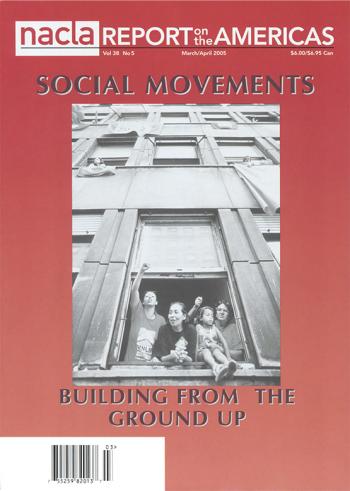Report
“What we should do is simply and smoothly separate ourselves [from Bolivia].” One might assume these words were spoken by a radical Aymara indigenista, but they were actually uttered by the powerful right-wing leader of a business association in the eastern city of Santa Cruz.
Over the past few decades, there have been various forms of popular protest in Latin America against the austerity measures and conservative economic policies that have come to be called “neoliberalism.” These protests have taken diverse forms: the Zapatista rebellion in Mexico, the neopopulist Fifth Republic Movement led by Hugo Chávez in Venezuela, the national indigenous movement led by the National Indigenous Confederation of Ecuador (CONAIE), the regime-changing popular mobilizations in Argentina and Bolivia, and the Landless Rural Workers’ Movement in Brazil (Movimento dos Trabalhadores Rurais Sem Terra, MST), which is the subject of this article.
With members of Venezuela’s political opposition trying to get rid of President Hugo Chávez by just about any means they can think of, Chávez’s supporters have been in a near-constant state of anti-opposition mobilization.
I have some very good memories of the activities of the movement. I also have some painful ones. Among the best is April 15, 1996, when we organized the greatest land occupation in the history of the MST. We had 6,000 families camped all night by the side of the road; there were so many people we couldn’t find transportation for them all.
“There were no social classes that day,” says Jorge Jara, recounting the protests of December 20, 2001. “You’d look, and we were all equals. ‘Let’s go!’ someone would say. And we’d all start moving.” Those protests brought down the ineffective Argentine President Fernando de la Rúa, albeit at the cost of dozens of lives.
Since 2001, activists from around the world who are opposed to neoliberal corporate globalization have gathered annually at the World Social Forum (WSF). The Forum brings together tens of thousands of people from the world’s social movements and nongovernmental organizations in pursuit of varied agendas: for women’s rights, small-scale worker-controlled enterprises, public health, community-controlled schools and a host of other causes.
The people of Nuevo San Isidro watched warily as a helicopter appeared over the horizon, circled in over their seven thatched huts and landed somewhere on the far side of the Lacantún River. This Tzotzil indigenous community had migrated to the remote jungle near the Mexican-Guatemalan border in February 2001.

